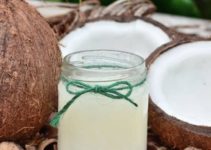What insomnia treatment works? This article summarizes 24 life-sustaining tips for sleep disorder treatment.
The central body parts inevitably need a sufficient quantity of rest—eight hours’ worth of sound sleep—every night. To regain equal footing, strength, balance in emotional, physical and mental state—a person has to have ample bedrest and proper nutrients.
So how does one ensure that the aforementioned things are enough for oneself and the family? How does one proceed on this path of endeavor? How does one attain a pleasant disposition, warmth of emotion, brilliance and shine, and splendour to emit rays of light once more?
Foremost, let us dissect and fathom the psychology behind sleep disorders. What are the physiological processes behind sleep disorder? And how can one assist with something that’s necessary in achieving an end—a good sleep—to be productive the rest of the day?
The next sections shed light on these concerns.
The Underlying 5 Factors of Sleep Disorder
1. Poor Diet
If you are the type of individual who couldn’t care less and are apathetic about what you’ve been feeding your body, naturally you’ll wind up having sleep disorder and other catastrophic health-related issues. A poor diet or eating unhealthy, vile foods that come with often harmful preservatives, you’ll end up having only 6 hours of sleep more or less.
2. Late Dinner
Eating dinner late results to a notably poor sleep quality and poor digestion. The digestive capability of your internal organs and stomach significantly decreases when the sun rolls down at 6 o’clock in the evening. Hence, it is advisable to practice eating an early dinner at 6 o’clock pm.
3. Gaining Weight
Gaining a lot of weight after consuming unhealthy foods can make you more likely to have sleep disorder, snore and even cause heartburn to occur. Heartburn happens when your esophagus does not maneuver enough after imbibing canned goods sodas, coffee, and/or liquor. Some pretty serious condition like gastroesophageal reflux disease can emerge after excessively consuming those aforementioned unhealthy foods.
4. Aging
The age factor may likewise predominantly play a role in disrupting one’s sleeping routine. When you reach 70, your body undergoes significant hormonal changes.
You wonder why suddenly your best routine sleep comes to a halt. Thus, it is best practice to regularly check what you are feeding your body. Start by having a list of all the foods you eat for the entire week and your weekly daytime activities.
Make a habit of creating your weekly food journal and your weekly activity journal with the last column on your comments and observations. Below, I have listed down the red flags for sleep disorder.
5. Siesta
Prolonged midday or mid-afternoon siesta or nap can disrupt the nighttime’s sleep. Sleeping during the daytime shifts your body’s sleeping pattern. A brief nap of around 30 minutes is okay to get rid of that drowsy feeling after lunch, but avoid naps of more than an hour.
The 6 Culprit Foods that Cause Insomnia
1. Caffeine and liquor
Chocolates, coffee, caffeinated soft drinks, soda and liquor can cause insomnia. These drinks increase sharpness or and keep you alive. So consuming them at night makes falling and staying asleep more quite challenging. You’ll end up tossing and tossing around.
The fallout of alkaloid or caffeine lasts several hours—to wear off from your body—so avoid consuming them up to bedtime. Consuming caffeine in excess adds to health problems such as diabetes, osteoporosis, heart attack, asthma, pancreatic cancer, etc. These foods can whisk away your sleep for 7 to 8 hours because of its ingredients, methyl imidazole or carcinogens found to evoke many types of cancer and even more for pancreatic cancer. Liquor further dehydrates the body, is hard to flush out from the internal body system and can lead to acid reflux.
2. Preserved foods
Excessive and repeated consumption of preserved foods like hotdog, ham, salami and sausages or called processed meat for an extended period highly increases the risk of many chronic diseases like tumor, thyroid, heart disease, cancer, etc. The sodium nitrate component in the preserved foods is cancer causing because they contain a harmful substance called heterocyclic amines or HCAS. This substance increases the risks of cancer in the colon, breast and prostate (Wang et al., 2021).
3. Instant noodles
Instant noodles are not easily dematerialized or dissolved, so the stomach is contracting back and forth, trying to strenuously grind up the ramen noodles or any instant noodles inside. It contains tertiary butylhydroquinone or TBHQ, which weakens the internal organs and results to tumor, thyroid, cancer, heart disease, etc. The TBHQ is also found in perfumes and bio diesel, so cautiously consider about eating and constantly having instant noodles in your body—rationalize a hundred times.
Instant noodles also have monosodium glutamate (MSG) causing sweating, headaches, and heart palpitations.
A study made by Doctor Braden Kuo of the Harvard University on the eaten instant noodles in the stomach was intact after 2 hours, which is very harmful as it stresses the digestive system to break down such processed foods. Likewise, Shin et al. (2014) concluded in their study that eating instant noodles correlated with increased cases of metabolic syndrome in women. Metabolic syndrome refers to health problems that simultaneously occur, such as high blood sugar, increased waistline circumference because of fats, high blood pressure, and bad cholesterol.
4. Canned goods
Canned goods have tons of salt that kick start blood pressure, that boosts the risk of a heart attack and a stroke. The inorganic phosphate in canned goods disrupts hormone regulation, damaging the tissue, leading to high risk of cardiovascular disease, kidney impairment, and bone loss.
5. Red meat
Red meat, rich in protein, is normally categorized as muscle meat from beef, pork, lamb, goat, or other warm-blooded land animals with hairy covering. It is laden with many fats, which makes the digestive system work so hard and for a long time that may cause for it to malfunction and get severely sick. Regular consumption of red meat implicates a ton of health problems like cancers, kidney problems, digestive issues, high cholesterol levels leading to heart disease, high blood pressure and other health concerns.
6. Candies
Gummy bears, Kinder Surprise eggs, wonder bars with plastic toys, Lucas Mexican Candy come with lead and other harmful chemicals that can disturb your sleep. These sweet things cannot easily dissolve inside your intestines, causing severe discomfort and sickness when consumed in indulgence. Too much sugar in candies increase energy availability that keeps you restless.
While there is life, there is hope. Hence, literally you perpetually explore insomnia treatment the natural way, the better course, and the solutions in a preferable manner.
Listed below are the best therapy for sleep disorder which you have to all together diligently follow to get the benefits of better sleep.
Insomnia Treatment: 8 Therapies

1. Undertake water therapy
Water intake every hour during the daytime plays a highly significant role. It also cleanses your body from the harmful free radicals you have eaten from preserved foods. Drinking water further before bedtime helps to ward off dehydration while you sleep.
If you have difficulty in breathing and if you even have a cold or a flu, a glass of warm water helps ease the symptoms so you can get some sound sleep and get that much needed rest.
2. Music or sound therapy
Soft music before bedtime is great. Lullabies facilitate babies to fall asleep.
The same holds true for us adults. Soft music enhances adaptability to rapidly feel more rested and eventually fall asleep. Try it. Strive to add it to your contingency night routine.
When having severe physical strain and stressed, your carb and protein metabolism get more active, leading to a poor sleep. Thus, listening to soft music decreases levels of cortisol—a stress hormone—and helps put people at ease and release stress.
Psychological response to music is effective in reducing physical pain, contributes to relaxation by soothing the autonomic nervous system including within the heart, lungs, and digestive system. It lowers heart rate, reduce blood pressure, slows breathing and subsequently relaxes you.
3. Eat veggies and fruits
Incorporate these 4 fresh veggies and fruits in your daily diet: cherries, kale, kiwi, and mangoes.
Cherries
Cherries are one and only source of sleep promoting melatonin that lulls you to sleep.
Kale
Kale, spinach and dark, leafy greens are loaded with calcium that promotes good sleep.
Kiwi
People who ate 2 kiwi fruits for dinner as dessert, 2 hours before bedtime fell asleep faster, sleep longer, and had better quality sleep. This is because of serotonin which has antioxidant properties and a precursor or necessary in the production of melatonin.
Mangoes
Mangoes contain antimicrobial properties proven to be highly effective in eliminating phlegm, night stuffiness thus better breathing. Its anti-inflammatory qualities eliminate asthma and relaxes you towards better sleep.
4. Eat sweet potatoes
Sweet potatoes are likewise an excellent source of potassium, thus help you relax before bedtime. It’s good to incorporate these in your healthy diet as snacks, dessert or much better, a part of your dinner.
5. Drink warm milk
Have a glass or a cup of warm milk an hour before your routine bedtime. Its calcium properties boost and tells the brain to go to sleep at night. It helps you relax and beat anxiety better.
Milk has tryptophan, an amino acid, that helps promote better sleep. It has a soothing effect that induces you to sleep at night. The proteins in milk trigger the receptors of your brain, which helps in reducing anxiety and stress, initiating a sound sleep.
6. Eat bananas
Chewing one piece of table banana as a dessert after eating dinner at 6 o’clock in the evening can improve sleep. Its fiber, magnesium, potassium, vitamin C, and vitamin B6 relax the brain. The potassium content relaxes your muscles and lowers nighttime cramps.
Stress is one of the most common causes of insomnia and or sleep disorder. Thus, banana before bedtime help a lot. The magnesium content of the banana lowers stress and anxiety level. It increases serotonin and melatonin that regulates your body’s internal clock by causing you to feel sleepy in the evening. It further relaxes your mind and body and finds a good night’s sleep.
7. Eat cherries
Cherries are likewise an extraordinary good source of melatonin and Vitamin C.
8. Dine early
Having an early dinner at or before 6 o’clock in the evening favors sleep. Late night meals cause indigestion and interfere with sleep. Worse, people who eat late at night tend to eat more.
Late-night noshing increases triglyceride levels of fats found in your blood that increases the risk of heart attack and stroke.
In the great old days, family and people eat dinner at 6 o’clock. Nowadays, people are busier and eat between 7-9 o’clock in the evening. Although society has somehow changed—notice that the human body, along with its internal physiology, has remained exactly the same forevermore as that’s how creation was made by God.
Eating late dinner is highly associated with weight gain, high blood pressure, heart disease, etc. The calories being eaten at a late dinner aren’t properly digested in the same way as those consumed earlier at 6 o’clock in the evening.
By eating earlier at 6 o’clock in the evening, the food can be fully digested, positively affecting your quality of an excellent sleep and energy levels when you wake up in the morning.
However, having late dinner is like rigorously letting your blender machine to grind frozen meat bones without water, instead of grinding fresh fruits with water. Henceforth, you are laboriously pushing your blender machine to overdo what it’s not supposed to do.
The same holds for your digestive system. You are giving it an arduous work by eating late dinner and bad foods.
It is highly recommended for people with diabetes, thyroid cancer, cardiovascular diseases, and high blood pressure to have an early dinner and to eat light.
Recommendations
1. Stop consuming caffeine-laden foods
Stop consuming chocolates, coffee, instant foods, soda, and liquor at 3 o’clock in the afternoon onwards.
2. Have a healthy bedtime routine
An excellent way to fall asleep promptly is to substantiate a healthy bedtime routine—start with going to bed and waking up at the same time each day. Getting into a regular habit reinforces your natural body rhythm.
Gently massage your hand fingers and palm for 2minutes before going to sleep. And then gently massage or press your pressure point H7 or Heart 7 left and right hands for 30 seconds each.
Exercise 2x or 3x a week. Life is great, so unwind and have fun, have outdoor activities with family and or friends.
3. Limit use of digital technology
Draw the line by reducing your habitual over usage of tv, technology, gadgets or devices in the late hours before bedtime. Avoid violent tv shows and movies. Practice relaxation techniques before bedtime.
4. Restrain red meat in your diet
Restrain your amount of red meat consumption and select only the lean cuts of meat. Beans and legumes are heart-healthy alternative sources of protein. These include the Pinto beans, kidney beans, garbanzos, soybeans, lentils, and black-eyed peas.
5. Read a printed book
If you can’t fall asleep after 30 minutes in the room, read a book. When you feel sleepy, get back to bed to sleep again.
If you still can’t sleep, pray and talk to God. Maybe you’re still up and awake because God wants to hear from you, so talk to God and pray humbly.
Be humble enough to come closer to God. Be humble enough to ask God to treat your sleep disorder. God is up close and personal, as close as your next heartbeat.
God loves a humble heart and will heal you.
Helpful Bible Verses
And by the river upon the bank thereof, on this side and on that side, shall grow all trees for meat, whose leaf shall not fade, neither shall the fruit thereof be consumed: it shall bring forth new fruit according to its months, because their waters they issued out of the sanctuary: and the fruit thereof shall be for meat, and the leaf thereof for medicine.
Ezekiel 47:12
And God said, Behold, I have given you every herb bearing seed, which is upon the face of all the earth, and every tree, in which is the fruit of a tree yielding seed; to you it shall be for meat. And to every beast of the earth and to every bird of the sky and to everything that moves on the earth which has life, I have given every green plant for food, and it was so.
Genesis 1:29-31
He causeth the grass to grow for the cattle, and herb for the service of man: that he may bring forth food out of the earth.
Psalms 104:14-15
The present times have provided the human populace with a variety of harmful instant preserved foods to choose from, loaded with detrimental damaging chemicals. But it’s written in the Holy Book of God that because of His great love, He has abundantly blessed humanity with the organic plant base, both for “food” and “medicine” purposes (Ezekiel 47:12).
It’s left to us the humanity if we will continue to choose the artificial, harmful, instant preserved foods but invariably suffer all the days of your life. Or choose the healthy plant-based foods, fresh veggies and fruits made by our Sovereign Creator God for food and medicines to live healthy, happier and longer.
Which will you prefer—the instant dangerous foods but has the tremendous sickness that goes with it—or the healthy plant-based foods, fruits and veggies that God gave for humanity?
We only live once, we only have one life—choose wisely whilst you still can.
Related Readings
Gardening and Mental Health: 5 Helpful Benefits
Therapy for Stress and Depression: 17 Natural Ways
Top 7 Healthy Nutrients for Your Body That Work Wonders
References
Chokroverty, S. (2010). Overview of sleep & sleep disorders. Indian J Med Res, 131(2), 126-140.
Mayo Clinic (2022). Sleep disorders – Symptoms and causes. Retrieved 10 June 2022, from https://www.mayoclinic.org/diseases-conditions/sleep-disorders/symptoms-causes/syc-20354018
Meltzer, L. J., & Mindell, J. A. (2006). Sleep and sleep disorders in children and adolescents. Psychiatric Clinics, 29(4), 1059-1076.
Morgenthaler, T., Alessi, C., Friedman, L., Owens, J., Kapur, V., Boehlecke, B., … & Swick, T. J. (2007). Practice parameters for the use of actigraphy in the assessment of sleep and sleep disorders: an update for 2007. Sleep, 30(4), 519-529.
Shin, H. J., Cho, E., Lee, H. J., Fung, T. T., Rimm, E., Rosner, B., … & Hu, F. B. (2014). Instant noodle intake and dietary patterns are associated with distinct cardiometabolic risk factors in Korea. The Journal of nutrition, 144(8), 1247-1255.
Thorpy, M. J. (2012). Classification of sleep disorders. Neurotherapeutics, 9(4), 687-701.
Wang, Y., Liu, Y., Huang, X., Xiao, Z., Yang, Y., Yu, Q., … & Yang, Y. (2021). A Review on Mechanistic Overview on the Formation of Toxic Substances during the Traditional Fermented Food Processing. Food Reviews International, 1-18.



